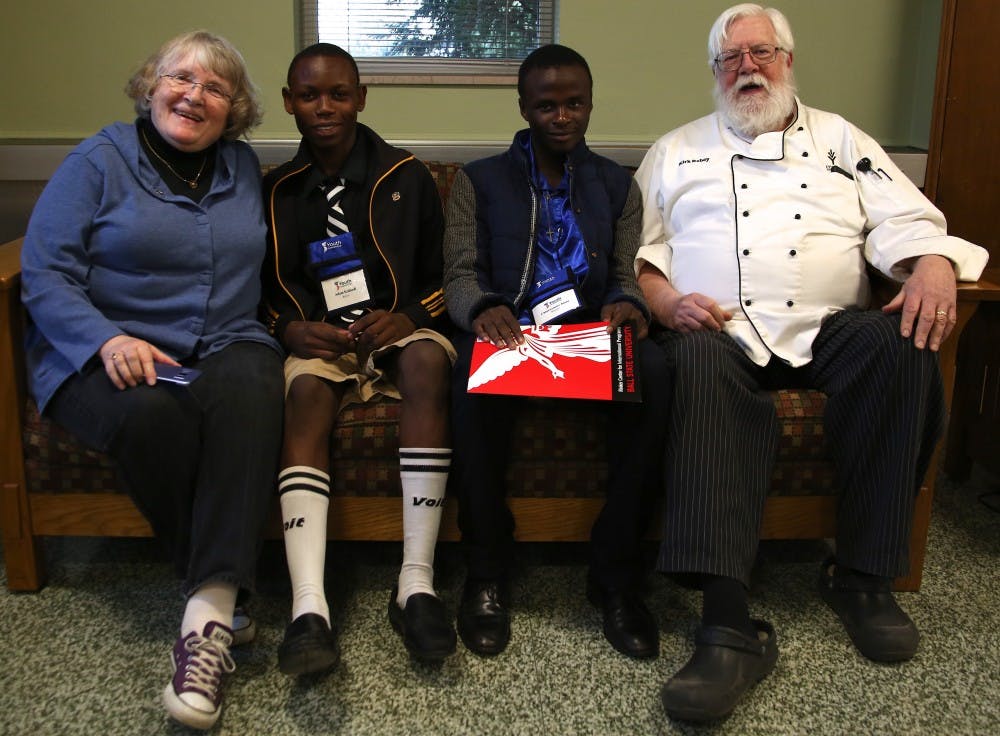On Saturday, a group of 15 students and five mentors arrived in Atlanta, Georgia, to begin their five-day cultural journey to Ball State’s campus.
“[The Pan-African Youth Leadership Program] is a two week long program in which a cohort of teens and adults come from various parts of Africa to Ball State,” said Jack Salzman, a student mentor for the program. “This is in order to learn various leadership skills to better their country.
“For example, they come to a country where they need to improve their recycling, and they help learn the leaderships skills to kickstart a leadership program at home. They meet with a tremendous amount of faculty and staff in various fields to learn various leadership skills.”
Host families are the key to giving students in the Pan-African Youth Leadership Program, PAYLP, the experience of living in American culture because they open their homes and help transport students to and from classes each day.
“We do say this is your host family, but they do initiate calling them mom and dad, and even son and daughter,” said Janice Miller, PAYLP project administrator.
Kathy Ramos, Ball State’s homestay coordinator for PAYLP, works to pair families with participants by reviewing parental applications and conducting training modules and background checks.
Ramos said after receiving a list of students from the U.S. Department of State, the program then decides what families will host a male student, a female student, two male students or two female students.
“Often people like to host in pairs because sometimes it can alleviate the tension,” Ramos said. “We often have older couples that have mentioned they like to host more than one because they feel they can’t entertain a teenager.”
Both Mary and Kirk Robey and Michael and Kristin Sherman have been hosts in the past and decided to once again provide a home for PAYLP students.
For the Shermans, opening up their home allows for a global experience right in their living room.
“We’ve always really liked seeing how the world works from another perspective rather than our own,” Kristen said.
The families that PAYLP students stay with provide more than a bed to sleep in; they also offer a seat at their dinner table.
Kirk, an assistant of culinary arts at Ivy Tech, said he enjoys creating a culinary connection with the students by having them cook with the family. He has found that the students take a “great deal of pride in sharing their culture.”
Wednesday night, the Robeys and Shermans, along with many others, finally met and greeted their guests with hugs and cheers.
“This is my first time living with people from another nation, so I want to learn from them. I want to share things from my country,” said Chimwemwe Jussa, pronounced [Chi-mwe-mwe, Ju-sa], one of the students staying with the Robey family. “I’m looking forward to making new friends and improving my basketball skills. And of course learning the culture of this country.”
Adam Kahimwei, pronounced [A-dum, Ka-him-we], is another student staying with the Robey family. He said he looks forward to learning more about American culture.
The students will be in Muncie for less than two weeks, but their schedule is packed with events, like developing service projects that students will take home with them, and Miller said the students will have an impact on the community.
“This is a program that takes a lot of energy and effort,” Miller said. “We were not really sure if we were going to be able to provide for the program this year, [but] we had people saying, ‘Please bring PAYLP back.’
“I think it's a program that impacts the students. I think it really impacts us, our community and our kids.”
Contact Pauleina Brunnemer, a guest reporter from the Indiana Academy, with comments at pdbrunnemer@bsu.edu or on Twitter @pauleina15.





